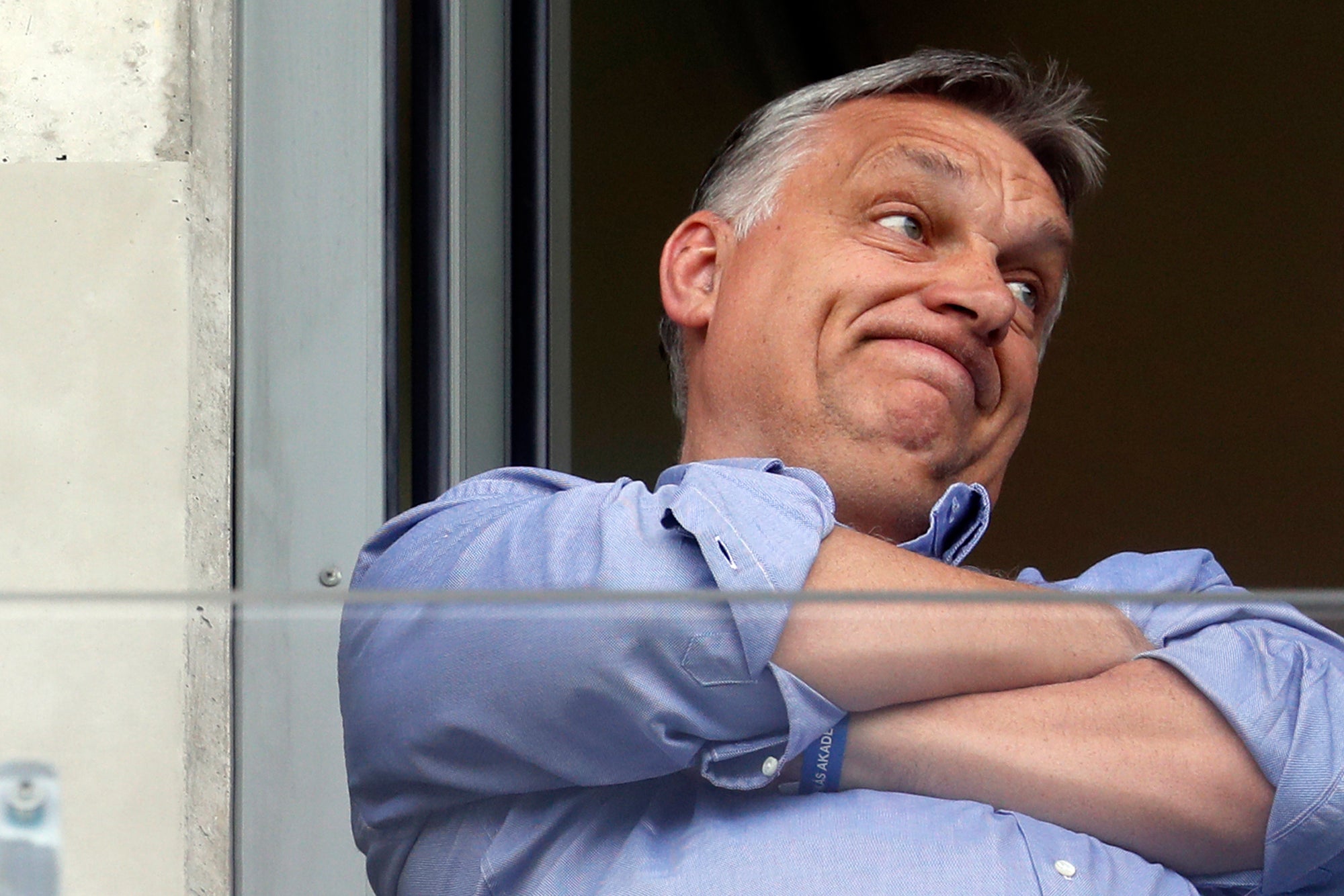6 Hungarian parties join forces to try to defeat Orban
Six Hungarian opposition parties have announced that they will unite in an effort to unseat Prime Minister Viktor Orban and his ruling Fidesz party in 2022 national elections

Your support helps us to tell the story
From reproductive rights to climate change to Big Tech, The Independent is on the ground when the story is developing. Whether it's investigating the financials of Elon Musk's pro-Trump PAC or producing our latest documentary, 'The A Word', which shines a light on the American women fighting for reproductive rights, we know how important it is to parse out the facts from the messaging.
At such a critical moment in US history, we need reporters on the ground. Your donation allows us to keep sending journalists to speak to both sides of the story.
The Independent is trusted by Americans across the entire political spectrum. And unlike many other quality news outlets, we choose not to lock Americans out of our reporting and analysis with paywalls. We believe quality journalism should be available to everyone, paid for by those who can afford it.
Your support makes all the difference.Six Hungarian opposition parties have announced that they will unite in an effort to unseat Prime Minister Viktor Orban and his ruling Fidesz party in 2022 national elections.
The parties on Sunday formally agreed to coordinate a single joint candidate to oppose Fidesz in each of Hungary’s 106 electoral districts, and to run on a single electoral list. They will also run on a common platform and hold a primary election to select a joint prime ministerial candidate to run against Orban, who has won three consecutive elections and has led the country since 2010.
The parties are ideologically disparate and include the liberal Momentum, right-wing Jobbik and green party Dialogue. In a statement they said their cooperation would not represent a merger, but that they would put aside their differences in pursuit of what they called a “change in era.”
“The Hungarian people have their first real chance in a decade to shake off the corrupt and dishonest rule of Fidesz,” the parties said.
Momentum chairman Andras Fekete-Gyor said the agreement represented “a historic day” which “expressed the unity of the nation.”
Recent opinion polls suggest such a unity strategy could be effective in challenging Fidesz’s decade-long hold on power. A November survey by pollster Publicus Research showed that the six parties cumulatively held a four-point advantage over Fidesz — more than the poll’s 3.1% margin of error. A poll released this month by Zavecz Research showed waning support for the ruling party, down six points since August to 30%.
Fidesz remains the most popular single party in Hungary. Opponents have argued that changes it authored to electoral laws have made the strategy of joining forces the only democratic means left to defeat the ruling party.
International observers described Hungary’s 2014 parliamentary elections as “free but not fair,” and the Organization for Security and Cooperation in Europe reported after the 2018 elections that “intimidating and xenophobic rhetoric, media bias and opaque campaign financing” had hindered voters’ ability to make a fully informed choice.
In late November, Orban broke a 130-year record to become the longest-serving Hungarian prime minister in history, including his first term between 1998 and 2002.
In their statement, the opposition parties vowed to purge the country of corruption, restore media freedom, author a new constitution and redraw election laws, all points of criticism leveled against Fidesz by opponents. The parties wrote that they would only run candidates that had not engaged in “unprincipled collusion” with the ruling party.
Subscribe to Independent Premium to bookmark this article
Want to bookmark your favourite articles and stories to read or reference later? Start your Independent Premium subscription today.